Discovering the Diverse Habitats of Markshall: From Mighty Oaks to Hidden Bats and Graceful Deer
Markshall is a unique landscape that spans woodlands, gardens, and historic structures, each offering a vital refuge for an extraordinary variety of wildlife. In this blog, we’ll take a closer look at three remarkable habitats found at Markshall: the ancient Honywood Oak and its inhabitants, the fascinating world of bats living in our wartime shelters, and the woodlands where fallow deer roam freely.
1. The Honywood Oak: A Mighty Tree and Its Ecosystem
At the heart of Markshall’s Arboretum stands the iconic Honywood Oak, a tree that has withstood centuries of change. This ancient oak is more than just a natural monument – it’s a bustling habitat for countless species that rely on its shelter and resources.
Wildlife calling the Honywood Oak home:
- Insects: The deep crevices in the bark provide a safe haven for beetles, spiders, and a variety of other insects, many of which are essential for pollination and decomposition.
- Birds: The tree’s towering branches offer nesting spots for birds such as woodpeckers and tawny owls, while its acorns provide a rich food source for species like jays and squirrels.
- Fungi and lichens: The ancient bark supports a rich variety of fungi and lichens, contributing to the overall health of the surrounding ecosystem.
For centuries, the Honywood Oak has served as a micro-ecosystem, hosting a diverse range of flora and fauna. It stands as a symbol of resilience, biodiversity, and the vital role that ancient trees play in sustaining wildlife.
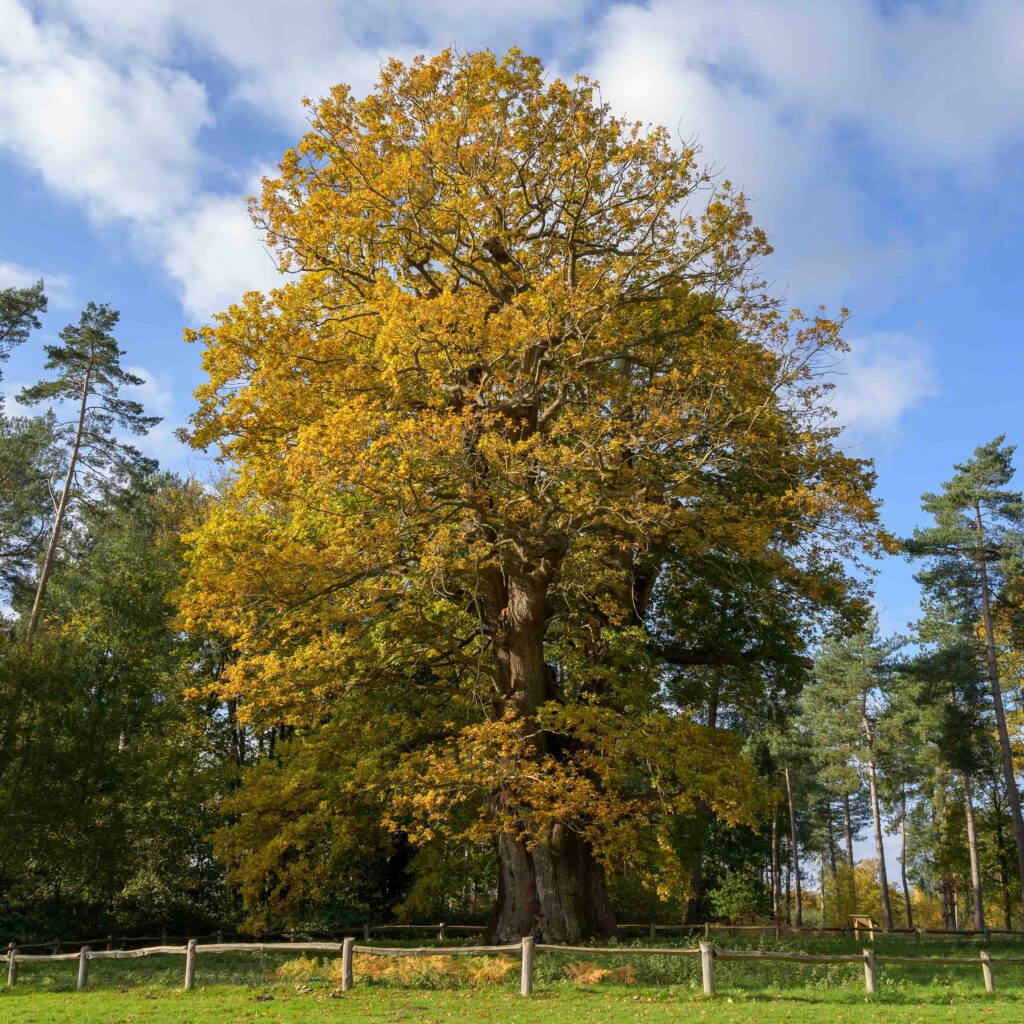
2. Bats in the Air Raid Shelters and Bat Hibernaculum: Hidden Habitats
Markshall is nationally important for bat conservation, thanks to the old trees, historic buildings, and rich landscape that provide ideal roosting and hibernation sites. Over the past 30 years, we’ve taken a positive approach to woodland management, encouraging biodiversity, which in turn supports our bat populations.
A Haven for Bats:
- Habitat diversity: The combination of woodlands, pasture, lakes, and ponds attracts a wide variety of insects, providing an abundant food supply for bats.
- Collaborative efforts: Markshall has worked with Essex Bat Group, the Forestry Commission, and Essex County Council to protect and enhance habitats. For example, our old WWII air raid shelters have been specially adapted to provide ideal conditions for bat hibernation.
As a result of these efforts, Markshall has become nationally important for hibernating Barbastelle bats and Brown Long-Eared bats, and is even globally significant for Natterer’s bats, a species that thrives in the shelter of our estate.
Bats found at Markshall:
- Common pipistrelle: Often seen feeding on insects at dusk.
- Brown long-eared bats: Known for their incredible hearing and long ears, they thrive in the estate’s woodland and adapted hibernation shelters.
- Barbastelle bats: These rare bats find sanctuary at Markshall during the winter months.
- Natterer’s bats: Globally significant populations of these bats hibernate here, benefiting from the careful management of their roosts and feeding grounds.
This ongoing work to protect our bat populations highlights the vital role Markshall plays in bat conservation on a national and global scale.
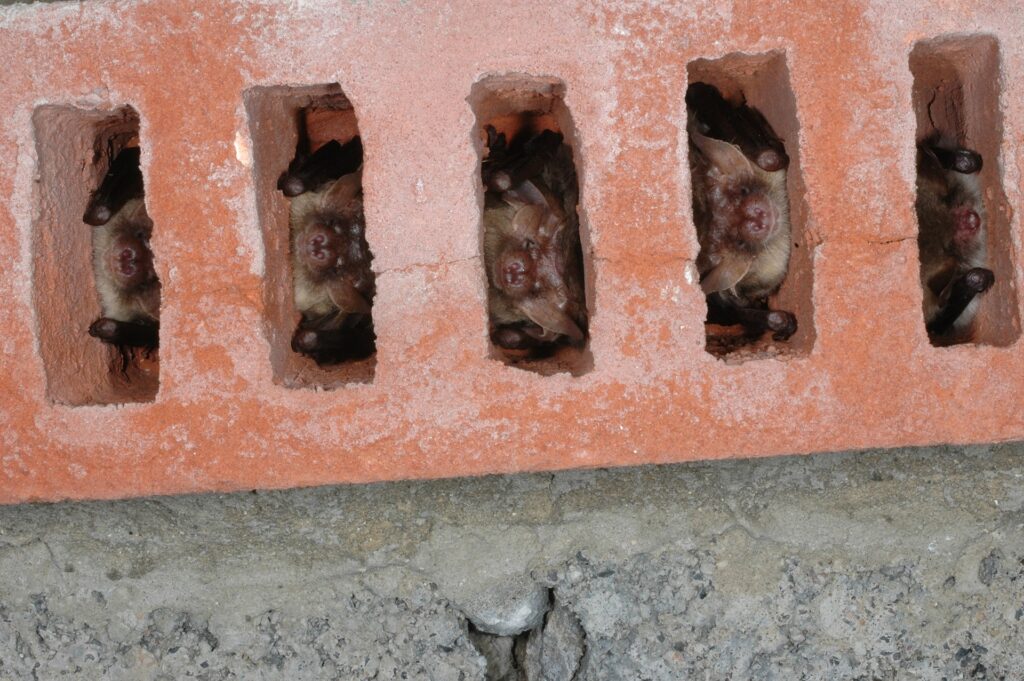
3. Woodlands: Home to Fallow Deer
The serene woodlands of Markshall offer more than just a tranquil place for visitors to explore – they are home to one of the estate’s most iconic inhabitants: the fallow deer. These graceful animals are a familiar sight in our forests, where they roam freely, contributing to the estate’s rich biodiversity.
Fallow deer in the woodlands:
- Herd behavior: Fallow deer are social animals, often seen in groups. Their grazing helps shape the woodland floor, creating a mosaic of habitats that support other wildlife.
- Seasonal changes: In spring, you might spot newborn fawns hidden among the trees, while in autumn, the impressive sight of bucks during rutting season highlights the strength and beauty of this species.
- Woodland management: At Markshall, we carefully manage the woodlands to ensure a balance between the deer population and the health of the ecosystem. This includes maintaining open spaces for grazing while protecting vulnerable areas of woodland regeneration.
The presence of fallow deer is integral to the woodland ecosystem, as their grazing patterns help manage vegetation and promote biodiversity. However, like all wildlife at Markshall, their habitats are carefully monitored to maintain a balance that supports all woodland species.
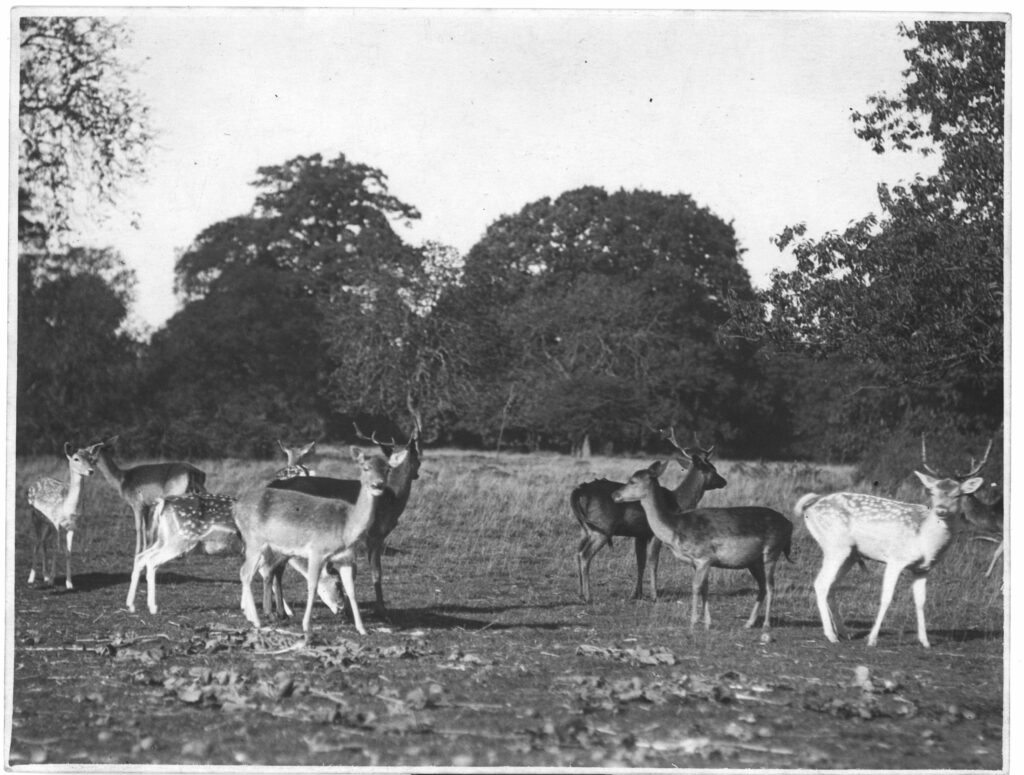
A Sanctuary for Nature at Markshall
From the towering Honywood Oak, alive with insects and birds, to the quiet air raid shelters providing refuge for rare and protected bats, and the peaceful woodlands where fallow deer roam, Markshall Estate is a sanctuary for wildlife in all its forms. Each of these habitats plays a vital role in supporting the biodiversity that makes Markshall so special.
Next time you visit, take a moment to appreciate the diversity of life that calls Markshall home – it’s a reminder of how important it is to protect and preserve these habitats for generations to come.
One response to “Discovering the Diverse Habitats of Markshall: From Mighty Oaks to Hidden Bats and Graceful Deer”
Leave a Reply
More from the blog
See more
-
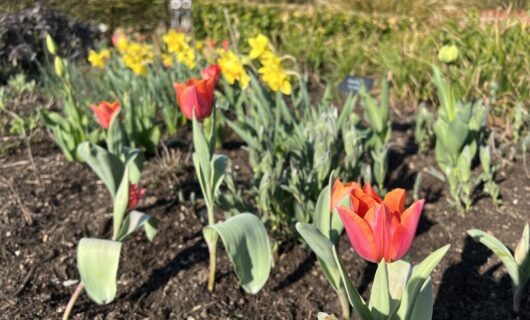
Updates from the Walled Garden in Spring
What can be discovered in the Walled Garden at Markshall this Spring? Our Walled Garden is home to a stunning […]
-

Commemorating the 80th Anniversary of Operation Varsity
What was Operation Varsity? Operation Varsity was the codename for the largest single airborne operation conducted on a single day […]
-
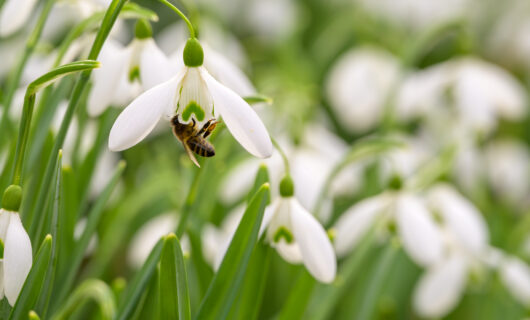
Your guide to enjoying the snowdrop display at Markshall
February is the best time to visit Markshall’s spectacular snowdrop display. To ensure that you make the most of your […]
Wonderful habitat from the really ancient alongside the recent additions.